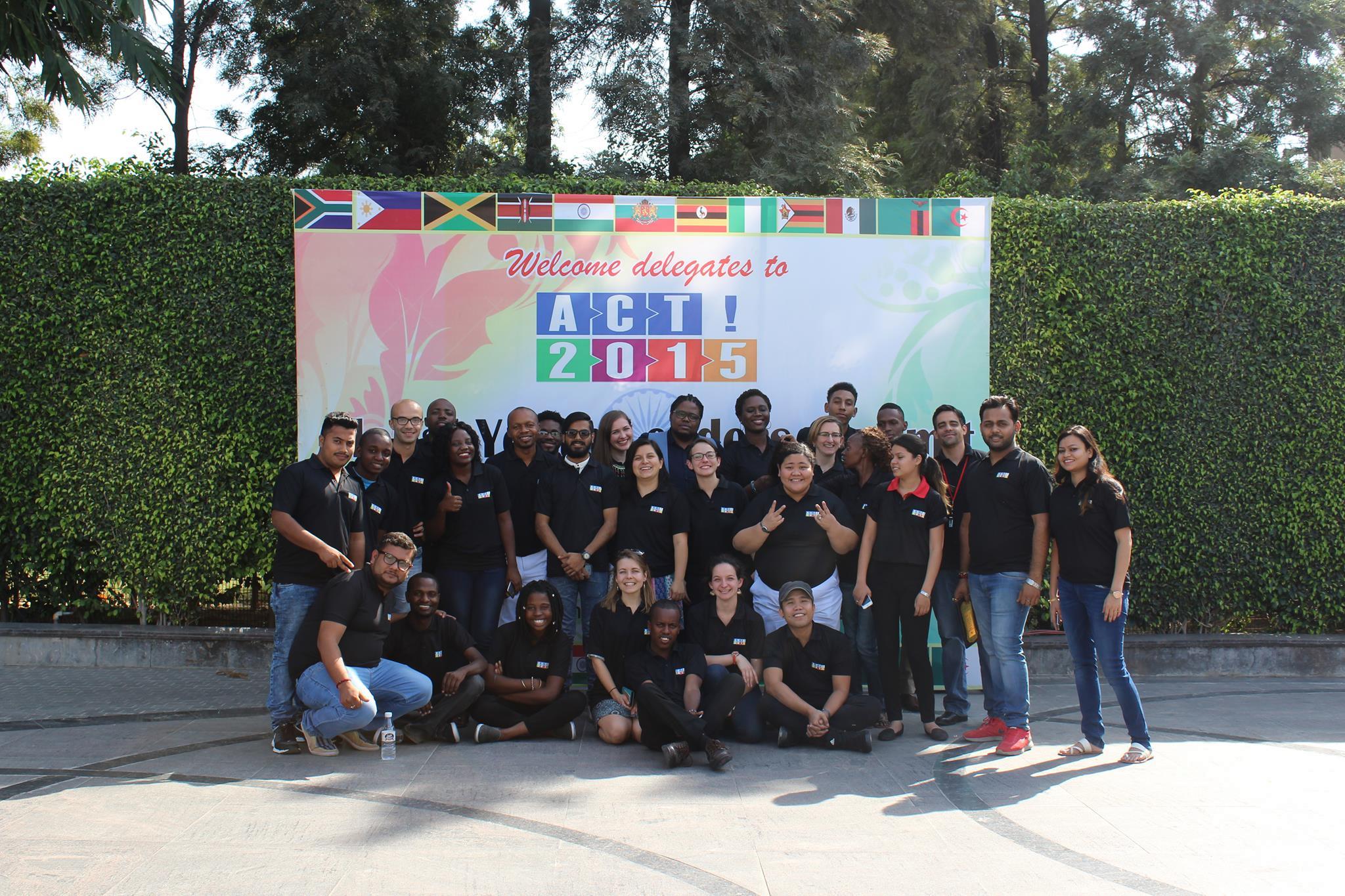
| 07 February 2017
ACT!2030
IPPF collaborates with UNAIDS and The PACT to implement ACT!2030 (formerly ACT!2015), a youth-led social action initiative which engages young people in 12 countries with advocacy and accountability around the Sustainable Development Goals (SDGs) and other SRHR agreements/frameworks. ACT!2030 was initiated in 2013 as a way to increase youth participation in the negotiations leading up to the adoption of the post-2015 development agenda, and for two years focused on establishing alliances of youth-led and youth-serving organisations in 12 countries across the world. The project is currently in Phase 4, which runs until the end of 2017, and aims to establish youth-led, data-driven accountability mechanisms to ensure youth engagement with the implementation of the SDGs and build an evidence base for advocacy. Ultimately, Phase 4 of ACT!2030 seeks to identify, assess and address key policy barriers to young people’s sexual and reproductive data by using existing data, supplemented by youth-collected data, to advocate and lobby for policy change. This phase involves four main activities: indicator advocacy (persuading decision makers to adopt youth-friendly SRHR and HIV indicators, including on things like comprehensive sexuality education (CSE) and access to youth-friendly services, into national/global reporting mechanisms); evidence gathering (creating national databases on quality of and access to youth-friendly services and CSE); communications (transforming this data and evidence into communications pieces that can be used to advocacy and lobby at national and international level); and global exchange (facilitating global visibility to share advocacy and engagement learnings and increase youth-led accountability in global and regional processes). ACT!2030 is implemented by national alliances of youth organisations in 12 countries: Algeria, Bulgaria, India, Jamaica, Kenya, Mexico, Nigeria, Philippines, South Africa, Uganda, Zambia and Zimbabwe.

| 09 April 2016
Sustainable Networks
Support for International Family Planning Organizations 2; Sustainable Networks (SIFPO 2) is a five-year programme funded by the United States Agency for International Development (USAID). It is aimed at improving IPPF's capacity to significantly increase family planning programming worldwide, working in partnership with The Population Council and our Member Associations. USAID, through SIFPO 2 is supporting IPPF to deliver high quality, affordable family planning services to young, poor and underserved women and men in USAID priority countries. By strengthening IPPF's organizational capacity and by supporting Member Associations directly, SIFPO 2 is helping build a stronger, more effective Federation. By the end of the project in 2019, we aim to: Strengthen organizational systems and improved capacity to deliver quality family planning and other health programmes Test, implement and disseminate innovations, tools and approaches for delivering family planning services to young, poor and underserved communities Implement or leverage financing mechanism that improve the sustainability of family planning and other health services Strengthen the capacity of IPPF Member Associations and other partner governments to provide high quality family planning and other health services Pursue innovative partnerships to strengthen health service delivery networks SIFPO 2 will transform IPPF’s systems and capacity to deliver quality assured, affordable family planning. Through a series of targeted investments, IPPF will move to a new trajectory of performance with new systems that enable data driven decision making and partnerships that increase sustainability. This investment will revolutionize our network and improve health and rights for millions of young, poor and/or underserved women and men in USAID family planning priority countries. Result areas Strengthening Organizational Capacity. The Sustainable Networks award provides IPPF with the opportunity to invest in strengthening its global systems to deliver high quality family planning. The project will allow for targeted contributions to our health management information system, supply chain management, and quality of care. We will support leadership and implementation of best practice across all MAs through organizational learning and investments in impactful, proven models of service delivery. Increasing Sustainability of Country-Level Family Planning. Sustainable Networks offers USAID the opportunity to leverage IPPF’s broad reach and extensive service delivery network by investing directly in locally owned and managed organizations. Through Sustainable Networks, our Member Associations will build the capacity of their local partners to provide high quality family planning and other health services and will pursue innovative partnerships to strengthen their health service delivery networks. Partners In order to deliver SIFPO-2, IPPF has partnered with selected family planning and research organizations including: The Population Council conducts research to address critical health and development issues. The Population Council will lead the research components of SIFPO-2 and will ensure that systematic evidence is generated on IPPF's programmes for organizational learning and wider dissemination. University of California San Diego (UCSD) Center on Gender Equity and Health (GEH) conducts innovative global public health research, including developing and evaluating evidence-based policies and practices related to gender-based violence and other gender inequities and their impact on health. IPPF and GEH are adapting and evaluating a promising clinic-based intervention (ARCHES, Addressing Reproductive Coercion in Health Settings) to reduce intimate partner violence, reproductive coercion, and related unintended pregnancy among women and girls attending family planning clinics. SIFPO-2 is also working in partnership with IPPF member associations in Nepal, Kenya, Malawi, Liberia, the Ivory Coast, Togo, Domonican Republic, Honduras, Guatemala, and El Salvador. The Support for International Family Planning Organizations 2 - Sustainable Networks project is a five-year cooperative agreement funded by the US Agency for International Development under Agreement No. AID-0AA-A-14-00038, beginning May 13, 2014. The information provided in this document is not official US government information and does not necessarily represent the views or positions of the US Agency for International Development. Project activities Here is a selection of SIFPO2 project activities across Asia, Africa and Latin America: Family Planning Association of Nepal (FPAN) Supporting voluntary family planning and Zika prevention in countries affected by Zika Family Health Options Kenya (FHOK)






